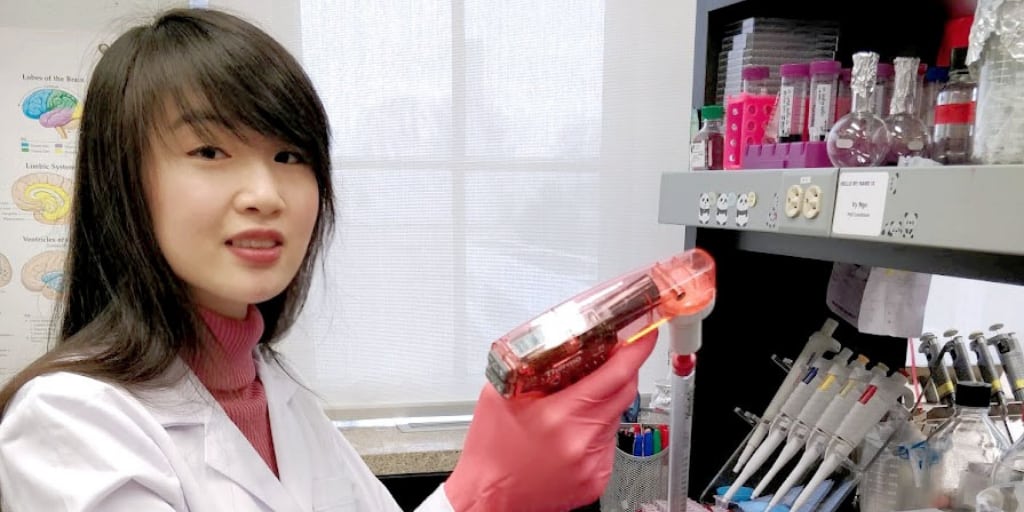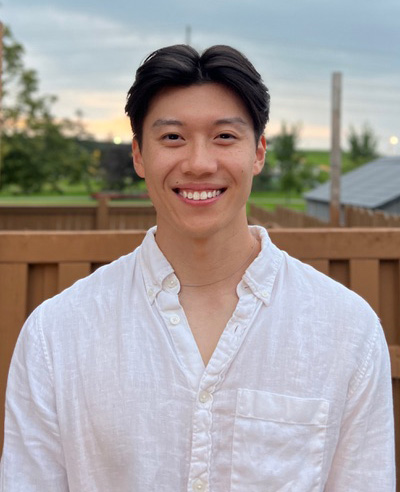1. Who are you? Tell us about yourself.
My name is Vy Ngo and I am a PhD candidate in the Department of Pathology and Laboratory Medicine at Western University. I work under the supervision of Dr. Martin Duennwald. Before my graduate studies, I completed my BSc at McMaster University with a double honours specialization in biology and psychology.
2. Why is the TBCRU Studentship Award important to you?
Receiving this award is a great honour, as I am pioneering my lab’s first breast cancer project. The TBCRU Studentship has helped to fund important resources for my work and has opened new opportunities for me to learn and network with other TBCRU recipients and breast cancer researchers and community members.
3. Tell us about your research. What are you doing and what problems do you hope to solve?
I am investigating therapy resistance in breast cancer patients and designing a unique approach using small molecules to enhance breast cancer therapeutics. Tumors from some breast cancer subtypes are highly susceptible to therapy resistance and metastasis (the spread of cancer), which must be considered when choosing optimal treatment strategies. For example, HER2+ breast cancers make them more aggressive, with an increased likelihood of developing a resistance to chemotherapy. Additionally, these patients have higher rates of developing metastases, especially to the brain.
I have found that HER2+ breast cancer cells express high levels of a protein called Hsp90 and this is associated with reduced patient survival. In my previous work, I have also found a link between Hsp90 and Nrf2, a protein known to promote cancer cells and therapy resistance. I am looking into the dual inhibition of these proteins using small molecules along with existing anticancer agents, as a potential new treatment strategy for therapy-resistant HER2+ breast cancer. I hope that this will combat therapy resistance and metastasis and greatly improve the outcome for many breast cancer patients.
4. Why is your research important? How can your research be applied in the real world?
Resistance to chemotherapy is one of the greatest challenges in breast cancer therapy. My research aims to improve existing breast cancer therapies by targeting pathways that contribute to cancer cell survival during therapy. By assessing how effective HER2+ breast cancer therapies are, in conjunction with Hsp90 and Nrf2 inhibitors, we will provide important insights into the the improvement of treatment outcomes for HER2+ metastatic breast cancer and open new avenues for breast cancer treatment in general.
5. What inspired your research?
I started my graduate studies investigating Nrf2, which controls the cellular oxidative stress response. I quickly learned how big of a role it plays in protecting cancer cells against environmental stressors, including chemotherapy agents. After I discovered the link between Nrf2 and Hsp90, further work revealed certain breast cancer subtypes have high Hsp90, which is associated with lower patient survival. That led me to the question: will the presence of both of Nrf2 and Hsp90 during breast cancer therapy increase the efficacy of existing cancer therapeutics and prevent the rise of chemoresistance to improve treatment outcomes?
6. Why are you passionate about breast cancer research?
The Breast Cancer Society of Canada has done an excellent job over the years raising awareness for breast cancer and stressing the importance of breast cancer research. This, in addition to my preliminary findings, inspired me to pursue breast cancer research.
7. Why do you think breast cancer research matters?
Despite advances in breast cancer research and increased awareness and prevention, breast cancer remains the second leading cause of cancer deaths in Canadian women. There are still many obstacles that clinicians and researchers must overcome, meaning more research must be done to understand the disease.
8. What excites you about your work?
Research is about asking questions and exploring the unknown; as someone who enjoys solving puzzles and mysteries, I find that aspect of research extremely exciting. Breast cancer is a complex disease and much still needs to be explored. In addition, the translational nature of my project means that it has the potential to be applied in the real-world, such as improved therapies for breast cancer patients, which is exciting and important.
9. What do you see yourself doing in the future?
I plan to do a postdoctoral fellowship outside of Canada to gain international experience. One day I hope to pursue an academic career as a research professor, contributing to science and teaching the next generation of scientists.
10. What do you like to do when you aren’t working on research?
Outside of the lab, I enjoy cooking, baking, and exploring new foods. I am also an avid music fan, and love board games and escape rooms.
Support researchers like Vy Ngo by considering a donation to the Breast Cancer Society of Canada. Find out how you can help fund life-saving research, visit bcsc.ca/donate




